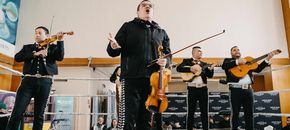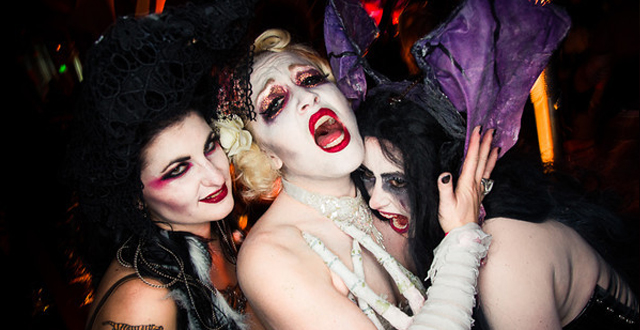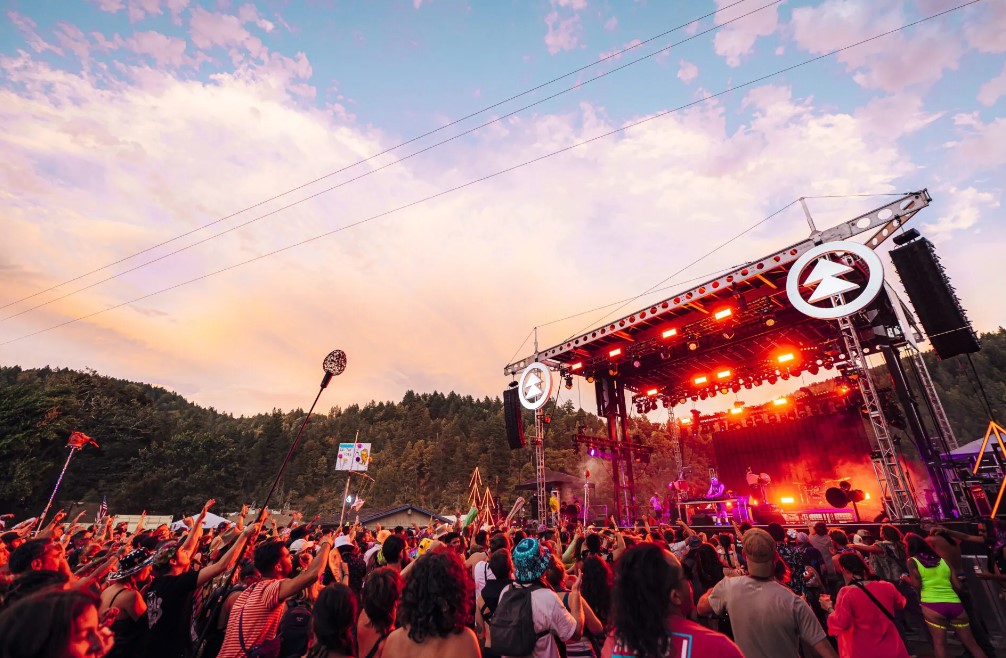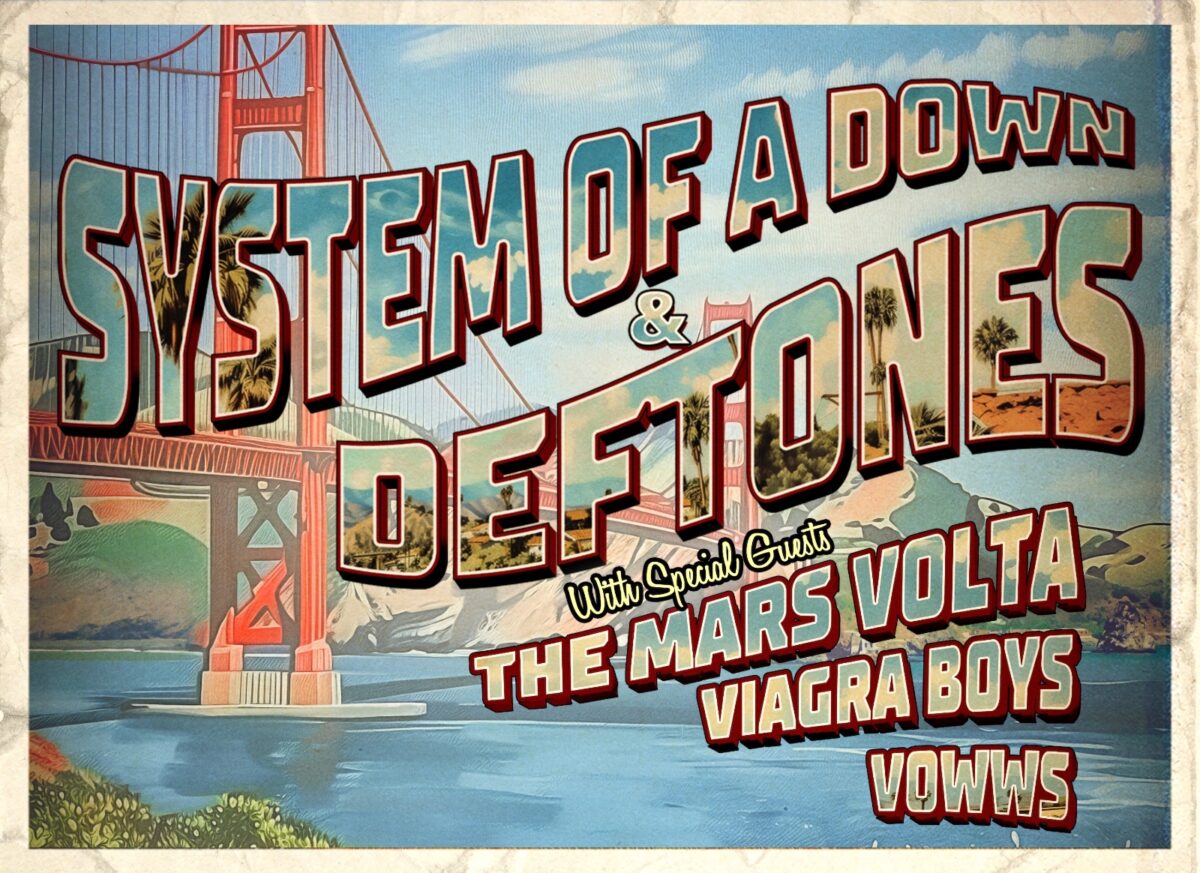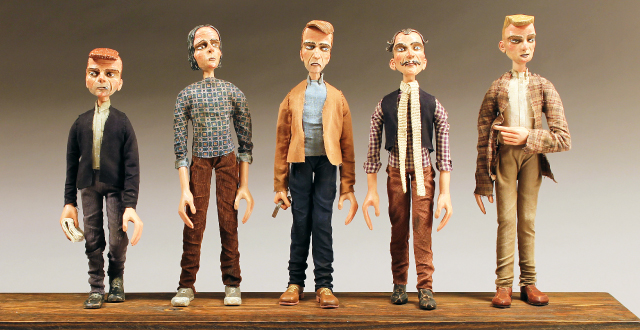J.D. McPherson Does It Himself Every Step of the Way

J.D. McPherson, Rock and Roll troubadour and aficionado, brings his amalgamated Rockabilly style to the Bay Area for a spirited evening at the Great American Music Hall this Friday.
Much like his music, J.D. McPherson isn’t one to be labeled. His progressive thinking and teaching background helped him swiftly adopt the roll of songwriter/bandleader. His latest record, Let the Good Times Roll, starts with a Little Richard like introduction on the title track as he sings over a subtle drum roll, “I miss you so, every time I fall away.” The song builds and suddenly embodies the era that Buddy Holly shined, but with a new age flare, catapulting the listener into the 1950’s where Music Diners and Make Out Points were trendy.
Hailing from the small town of Buffalo Valley, Oklahoma, McPherson was far enough removed to take an objective approach to music, dismantling its roots that planted seeds in his soul helping to create a distinct musical authenticity. We caught up with J.D. and gained a little insight into his childhood, his teaching days and current conceptions of music.
Was there a defining moment that inspired you to play Rockabilly oriented music?
First of all, I would self identify the band as a Rock and Roll band. Rockabilly has a certain set of parameters. It’s semantics and most people don’t care or know what that means, it’s music nerd stuff.
When I was around sixteen I was really into music, discovering punk rock music and all the cool alternative music in the mid-nineties. I lived in a really rural environment and it was tough to discover stuff. There was a music shop that about 45 minutes away and there was a cool girl working there who would order records for me. She gave me some Buddy Holly deco stuff, before he started getting big, and I really responded to that in a major way. It’s really great, super high quality songs and cool production. I found it sort of indistinguishable in tone from Ramones records. It was more of a Texas and Queens, New York thing, a different type of “musicianship.”
On a scale of 1-10 how punk rock were you?
I don’t know if that scale translates to Buffalo Valley, Oklahoma. I was as punk as you could be there. Since there wasn’t a scene around I wasn’t tethered to the fashion and social side of it. Once I moved out of Oklahoma and went to school, there were punk rockers that dressed a certain way with bandaged trousers and back patches. I was able to kind of focus on the more positive faucets, the economic ability and the “do it yourself” motifs. Everything the band puts out is done in house. All the videos are shot and edited by me. I like to have a hands on approach with everything I do.
Your music almost has a Black Keys type of feel to it…
That makes sense. I know that Dan and I have similar tastes in music and I worked with Mark Neil, who produced Brothers. A lot of his sound pallet carried over. I love the Black Keys and love that they’re on mainstream radio.
Dan Auerbach is an amazing live guitarist, too.
It’s more about instrumental compositions instead of guitar wank stuff. In a live setting it’s totally appropriate to have guitar wank, I do it myself.
I read you’re also inspired by Wu-Tang?
I love Wu Tang and a lot of other hip-hop music; Beastie Boys, DJ Muggs, Funkdubious, Cypress Hill, Chuck D and Questlove. Lots of those guys are real musicologists and really knowledgeable. I remember Dr. Dre saying in the nineties that he was gong to see Nirvana, and Ice-T was wearing Slayer and Black Sabbath shirts.
That quote came from one of the first interviews I ever did. It’s a very provocative statement. What influenced me more than anything else was their production style; the out of tune piano loops and dark gritty sound pallet. I love the idea of loops. On the first record there was one song that I was like ‘let’s make it like Wu-Tang where the band plays the same thing over and over again.’ People say they don’t hear the influence but it’s there in spirit.
Let the Good Times Roll seems much more complex than your first record, Signs and Signifiers. What were the main differences making a record this time around?
I grew more brave as far as a songwriter and let the parameters expand, and also working with a band. The first record had hired guys I didn’t know, but the second record was a band record and we took a slightly more experimental approach.
You studied visual arts at the University of Tulsa. Was this interest something you were exposed to in college or did you have an inherent interest in studying the arts?
People are the way they are, they’re born that way. Somewhere in high school, a friend of mine’s trans mother was a professor from New Mexico and was a literature person and knew that I was an artist. I told her I was going to optometry school and she was like ‘why aren’t you going to art school?’ She took me to this painter who had been painting since the 1950’s and it never occurred to me that you could that do or be that. Once that happened, much to the chagrin of my mom, I decided I go to art school. Now she’s totally supportive. Even when I was playing my punk rock shows she once talked the cops out of shutting down a show.
You actually had a career as an arts and technology teacher. What’s the story behind that?
I was wrapping up my masters degree and had a family and was like, ‘what am I gonna do?’ Luckily I got a job offer to teach at this school. I did a summer course in video art for high school students and it went really well. I had plans to build this really exciting Avant-garde art program for middle school kids. I almost did it and then they let me go after three years. The other day I got a card in the mail from one of the kids who made a donation in my name and thanked me for turning him onto music.
One of my teachers in middle school introduced me to Operation Ivy and the Pixies. I remember he was very discrete and careful about it.
My thing is that you have to be careful, but as long as the kid shows that they’re kind of thinking about things then it’s usually safe. There was a Rolling Stone article and the writer found out I had a Mixtape Club. There was this soccer player who heard me playing Bad Brains and liked it so I made him a hardcore punk tape and he got really into it. It turned up in the article that that’s what I got fired for, but that’s not why.
Would you ever consider teaching again?
Nope. This is wanted I to do since I was fifteen and have been granted the opportunity to do it.
J.D. McPherson plays the Great American Music Hall on July 31st.
